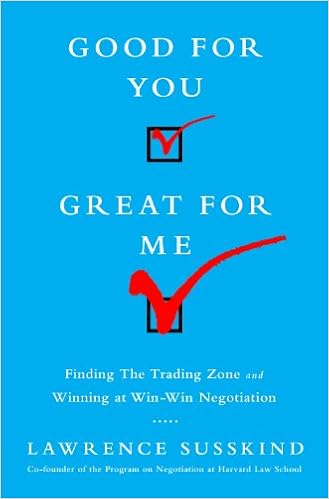There's a lot of confusion about the best way to respond to a lie spoken in a public context. One strategy is to ignore it and act as if the statement was never made. I guess folks who take this tack hope they'll avoid giving a false statement any traction. A second response is to suggest that the person making the statement probably didn't realize what he or she was saying. This approach presumes that its always best to give someone the benefit of the doubt and presume there's just a misunderstanding on their part. I don't think so. From my standpoint, the most effective response to a lie is to name it, frame it, and claim it.
Wednesday, August 19, 2009
What should you do when the other person is lying (in a public context)??
If I think someone is lying -- that is, deliberating making a statement they know to be false, I'll say that out loud: "That's a lie." Or, "Wow, another whopper." Yes, I'm giving visibility to the statement, but, from my standpoint, I'd rather the statement be labeled as a lie than allowed to stand unchallenged.
That's not enough. It is important to say why I think the statement is a lie and to suggest what the motive of the liar might be. I call this framing. Motive is important. If I can't think of any reason the person making the statement might have for misrepresenting the truth, then I might chalk their statement up to ignorance or reckless disregard for the truth. So, for me to call something I lie, I have to believe that the person making the statement has a motive for misrepresenting the truth. I link my characterization of their motive with the evidence that ought to convince any neutral observer that their statement is untrue. "That's a lie. That's not what it says on page 1014. They are obviously are trying to make the President look bad." Or, "No, that's not what happened on that date. They obviously would rather have us believe something that casts them in a better light. Here's reliable information to the contrary."
Finally, I think it is important to "own" my claim that their statement is a lie. That means, I need to be confrontable. If I'm going to call someone a lier, I ought to do it in a very public way -- to their face, if possible. I'm certainly not going to do it anonymously. The credibility of my characterization of their motive hinges, in part, on my willingness to stand behind my charge. "That's a lie. She is just trying to gain publicity for herself and play to her constituency. The bill doesn't say that at all. In fact, here's what it says. I'd love a chance to meet with her and have her show me exactly where it says what she claims."
Name it as a lie. Frame it by postulating the lier's motive and offering evidence to the contrary (that any neutral observer would accept). And, claim responsibility for your counter-charge.
If someone else has a different view of how to respond to a lie, I'd love to hear it.
Posted by Lawrence Susskind at 6:11 AM
Labels: lying, misrepresentation, responding to a liar
Subscribe to:
Post Comments (Atom)





3 Comments:
I like the process suggested. I'd be interested in seeing a bit more about how you assess a statement as a "lie" since one would want to be pretty certain that it's not a mistake. An example would help.
Regards,
Catherine Morris
I'm afraid this strategy is too confrontational for me, and will lkikely have unfortunate consequences not easily repaired if I use it and the suspected lie is really the truth, or close to it! I agree that understanding, or at least speculating on, the motive for lying is important, but I would refrain from using it as ammunition to throw in the face of and embarrass the liar. Rather, if this person and our relationship is important to me, then I would use my 'knowledge of the motive' in more subtle ways to enrich our relationship and help my friend get beyond the need to lie to me. I might try something like these statements to introduce a meaningful dialogue. "Help me understand the discrepancy between what I saw that day, and what you just reported." "Might that discrepancy be traced to differences in our self interests?" If this 'liar' was not important to me, and for some reason I wanted it to stay that way, I would ignore the lie. Life's too short to play seriously the role of 'truth police'.
I like to look at people as probably being too frightened to say something different. That way I still see them as being human, just like me.
(I know often when I was younger I was scared to be honest in case I got punished/excluded, so chose to protect myself at the expnse of being honest and open.)
You asked if someone has a different view of how to respond to a lie, you'd like to hear it. Mine would go something like this:
"When I hear you say X, I feel uncomfortable because I observed something different on such and such an occasion. I really value co-operation and shared understanding. Would you be willing to take 5 minutes with me now/at the next coffee break to check we're on the same page?"
I'm curious to know if you find part of what I've written useful Larry?
Post a Comment